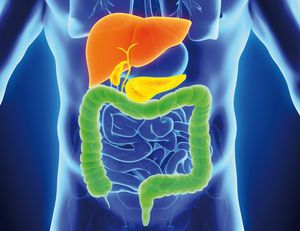
Helicobacter pylori assay kit 6012fecalimmunoassay
Add to favorites
Compare this product
Characteristics
- Micro-organism
- Helicobacter pylori
- Sample type
- fecal
- Analysis mode
- immunoassay
- Result display time
75 min
- Sample volume
0.05 ml
(0.00169 US fl oz)
Description
The Helicobacter pylori Antigen is a qualitative immunoassay for the determination of Helicobacter pylori antigen in fecal specimens. The Helicobacter pylori Antigen is intended as an aid in the diagnosis of Helicobacter pylori infections in conjunction with other clinical and laboratory findings. The immunoassay is designed for manual professional in vitro diagnostic use.
Diagnostic Relevance
Helicobacter pylori (H. pylori), a gram-negative spiral shaped microaerophilic bacterium that can colonize the human stomach, is a common bacterial cause of peptic ulcers. H. pylori can be effectively detected from stool (faecal) samples. The bacterial enzyme, urease, plays a pivotal role in the protection of H. pylori in the stomach from the fatal effect of gastric acid: This protection is achieved by incorporation into the gastric mucosa and the cleavage of urea to carbon dioxide and ammonia; the later which nullifies the gastric acid around the germ. H. pylori screening is essential in the diagnosis of stomach diseases, in that the bacterial infections is associated with stomach disorders characterized by elevated production of gastric acid; e.g. type B gastritis, about 75% of Ulcus ventriculi and almost all cases of Ulcus duodeni. Due to the chronic infections caused by H. pylori, it has been confirmed by the WHO (1944) to belong to the group of defined carcinogens, and accepted to be a high risk factor for the development of gastric malignomas and MALT lymphoma.
Description - Enzyme immunoassay for the qualitative determination of Helicobacter pylori antigen in fecal specimens
Format - Microtiter plate coated with monoclonal antibodies against Helicobacter pylori
Catalogs
No catalogs are available for this product.
See all of MEDIPAN GmbH‘s catalogsRelated Searches
- Assay kit
- Blood assay kit
- Serum assay kit
- Immunoassay assay kit
- Plasma assay kit
- Infectious disease detection kit
- Rapid lateral flow test
- Immunoassay rapid diagnostic test
- Clinical assay kit
- Lateral flow test kit
- ELISA assay kit
- IgG test kit
- Strip detection kit
- Laboratory detection kit
- Bacteria rapid diagnostic test
- Rapid feces test
- Nasopharyngeal assay kit
- Antibody assay kit
- Feces test kit
- Immunofluorescence test kit
*Prices are pre-tax. They exclude delivery charges and customs duties and do not include additional charges for installation or activation options. Prices are indicative only and may vary by country, with changes to the cost of raw materials and exchange rates.











